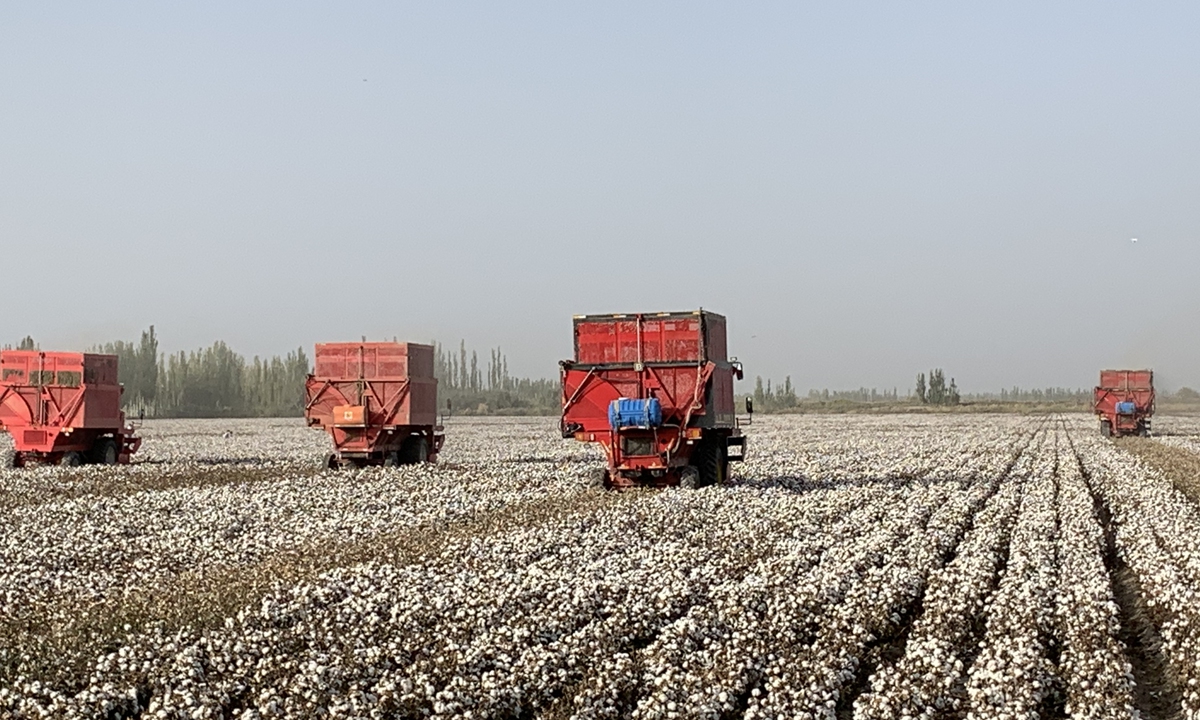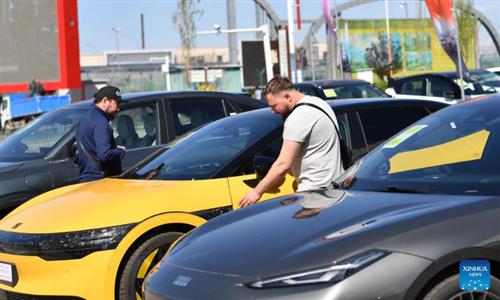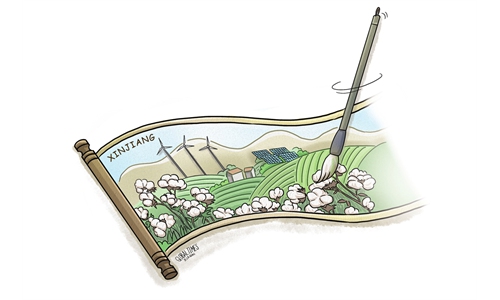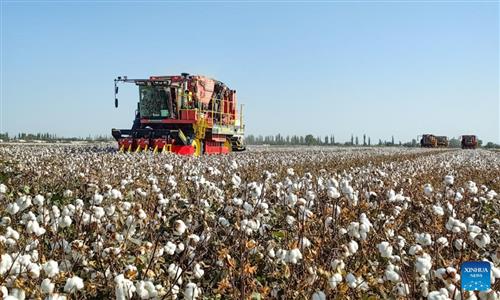Who is the ostrich sticking head in sand on Xinjiang-related issues?: Global Times editorial

A view of a cotton farm in Xinjiang File Photo: Li Xuanmin/GT
On Monday, the US Senate Finance Committee released a report accusing several European car manufacturers of using components from a company which is allegedly associated with the so-called forced labor in China's Xinjiang region. According to The Hill, committee chairman Ron Wyden named BMW, Volkswagen and Jaguar among the automakers, accusing them of "sticking their heads in the sand" and refusing to acknowledge any "forced labor" in their supply chains. This indicates that the US' illegal unilateral sanctions against China on Xinjiang-related issues continue, but efforts to drag allies along have been met with resistance.
This is an act of intimidation against European car companies, essentially coercion and bullying. US lawmakers are wielding an evil domestic law, creating a pseudo-political court without any legitimacy, attempting to judge everything and demanding anyone suspected to prove their innocence, forcing them to kneel to Washington's rules. Those "on trial" who refuse may face consequences. This unhealthy trend has long been a nuisance to the international community, serving as yet another proof of the US' harassment, threats and disruption of the normal ecology of economic globalization.
Is there "forced labor" in Xinjiang? The answer is obvious. Anyone who has genuinely visited Xinjiang and understands the region knows this is an outright political lie. The UN Special Rapporteur on Unilateral Coercive Measures and Human Rights, Alena Douhan, just concluded her visit to Xinjiang. At a press conference on May 17, Douhan stated that now anything related to Xinjiang is accused of being connected to the so-called forced labor, and the accused parties are required to prove their innocence, which is a complete reversal of the burden of proof. She also called on countries to lift and suspend all unilateral sanctions applied to China without authorization from the UN Security Council. Clearly, on the issue of the so-called forced labor, the truth is not hard to discern.
Douhan visited various cities in Xinjiang, including Urumqi, Shihezi, Changji, and Hotan. She discovered that the root cause hindering the development of human rights and livelihoods in Xinjiang is the rampant unilateral sanctions. "During my visit I received numerous reports on the unilateral sanctions' adverse impact and the consequent socio-economic implications affecting people's lives," Douhan said. The US sanctions have no factual basis, severely damaging the rights and interests of relevant businesses and individuals, and directly impacting the local economy and employment. Hiding behind the guise of human rights to infringe on human rights, while turning a blind eye to the right to subsistence and development of the people in Xinjiang, is not just a case of willful blindness but also blatant hypocrisy and double standards.
Washington, with its ostrich mentality, not only turns a blind eye to genuine human rights in Xinjiang but also disregards the global supply chain and market that widely depend on Xinjiang products. Douhan confirmed that, affected by the US unilateral sanctions, agricultural products in Xinjiang such as cotton and tomatoes, which take a large share of the global market, as well as the photovoltaic industry, have suffered multiple blows. This gives reason to be wary: in Washington's game of reshaping the global industrial supply chain, rumors about Xinjiang have transformed from political tools into "economic weapons," playing a disgraceful role in disrupting the global industrial supply chain and suppressing the competitiveness of other countries.
As the US has announced heavy tariffs on Chinese new energy vehicles, Congress is now playing the Xinjiang "forced labor" card. It is obvious that its aim is to suppress China's auto industry and coerce European allies into "decoupling" from China. However, decoupling is the enemy of globalization. Even the most extreme American politicians who wish to decouple from China do not dare to openly state their intentions. This is why they need to fabricate a lie about Xinjiang to find a "moral high ground."
Many people may still remember the relentless blow by the US and European media of Germany's Volkswagen a few years ago, simply because it had opened a factory in Xinjiang many years prior. Under immense pressure, Volkswagen commissioned an independent investigation by third parties according to Western standards, which proved its "innocence." But this result was largely ignored by Western public opinion. At that time, the Global Times published an editorial pointing out that on the issue of the so-called forced labor in Xinjiang, they do not want the truth. In fact, they are afraid of the truth.
In recent years, more and more Western journalists, international friends, and experts have visited Xinjiang, reaching the same conclusions as Ms Douhan. Increasingly, foreigners are beginning to understand that the so-called "forced labor" in Xinjiang is nothing more than Washington's cover for exercising economic hegemony against China under the guise of Xinjiang issues. Lies will eventually be exposed, and the malicious laws and rogue provisions related to Xinjiang will ultimately be swept away by the tide of open and multipolar international trade. Those who refuse to accept this trend will one day realize that the ostrich with its head buried in the sand is none other than themselves.



